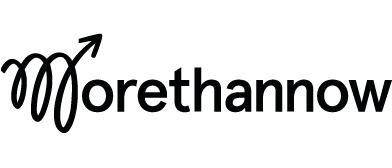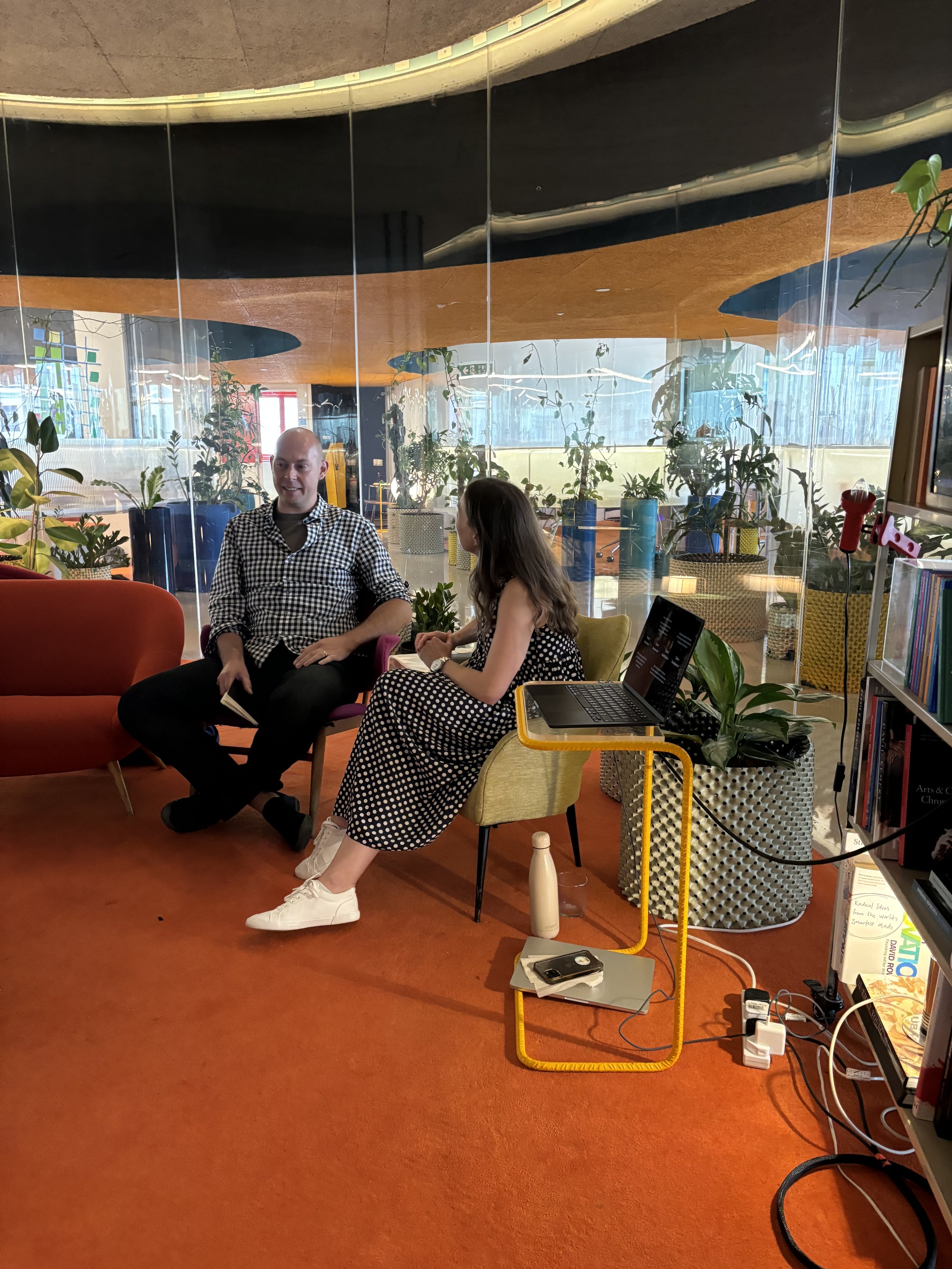The Talent Revolution - AI in the Workplace
At MoreThanNow, we’ve been grappling with what the explosion of AI in the workplace means for talent management and leadership. So last week, we brought together an expert group of leaders to help us figure it out - from organisations including Amazon, Santander, Standard Chartered, Nationwide Building Society, Novartis, Sainsbury's, and Vodafone. The morning was a rich exchange of ideas on the evolving landscape of talent, leadership, and the impact of artificial intelligence on organisational culture. It helped shape our future outlook on AI, from evaluating the effectiveness of AI tools to building the team dynamics where fundamentally new ways of working can be safely explored.
We were particularly grateful to our partner, Carl Clarke, Head of Talent, Leadership, Skills, Performance, and Learning at Vodafone, for kicking off the session with an overview of Vodafone's ‘Talent Revolution’ strategy. Carl’s insights resonated with many of the challenges and opportunities that were top of mind for the leaders in the room, setting the stage for an engaging conversation.
The discussions underscored a shared understanding that the rapid advancements in AI, coupled with the ever-changing nature of work, demand a new approach to leadership and organizational development. The ability for leaders, teams, and entire organizations to learn and adapt is paramount, and our work at MoreThanNow is designed to respond to this shifting paradigm:
We explored the importance of Behavioural Strategy, leveraging external research and internal data to anticipate the impending upheaval in talent and leadership priorities. This isn't about attempting to forecast the unpredictable development of AI technology itself, but preparing organisations to thrive in a world where continuous adaptation is the new constant. It's about understanding the human element at the core of technological transformation, using existing literature on dynamics like learning agility, collective intelligence and psychological safety.
Equally important is our focus on Behavioural Tactics. Through our experimental model, we’re actively designing and testing interventions that strengthen leadership capabilities, enhance management and team dynamics, and pioneer new approaches to talent, career, and skill development. In short, whatever you predict you need for the future needs to be proactively designed into the way you hire, assess and reward talent.
Finally, a significant thread throughout the roundtable was the Always-on Evaluation of AI Technology and Team Dynamics. We discussed the importance of continuously tracking the adoption and usage of AI tools and agents within teams. By correlating this data with rich datasets on employee experience, performance, behaviour, and demographics, it’s possible to provide real-time insights into how high performers are leveraging new technologies, identifying best practices that can be scaled across an organization.
“Organisations are grappling with ‘new’ challenges in the face of AI adoption in the workplace. But a lot of the questions we ended up asking ourselves are ‘age-old’ around how leaders adapt to change, how we motivate employees to engage and how we share learning amongst teams.”
We’re excited to get stuck into more research questions in the coming months and years. Some are evaluations of age-old questions in an AI era, while others may fundamentally change how we think of topics like delegation, management and work allocation:
What does effective management of AI agents and cybernetic teams look like?
Are AI coaching tools really more efficient than traditional programmes, and what is their cost-benefit?
How do we finally tackle talent hoarding by managers, in a way that proactively encourages mobility and reskilling?
It was so valuable to gather such a diverse and insightful group of leaders who are all engaged with these topics. We’re excited by the ongoing projects we’re undertaking with many of the partners present, and we look forward to continuing to work together to shape the future of leadership and organisational excellence in this transformative era.
If you’re interesting in exploring any of the themes above in your organisation, please get in touch with us below:



